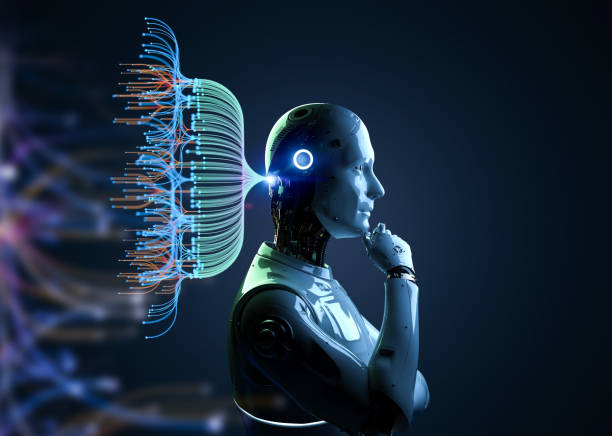What is an AI Agent? Everything You Need to Know
AI agents are autonomous software systems that perceive their environment, make decisions, and take actions to achieve specific goals. These intelligent programs operate independently, learning from data and adapting their behaviour based on feedback. From simple chatbots to complex autonomous vehicles, AI agents are transforming how we interact with technology and automate tasks across various industries.

The concept of artificial intelligence agents represents one of the most significant developments in modern computing. These sophisticated systems combine machine learning algorithms with decision-making capabilities to create programs that can operate independently in dynamic environments.
Understanding Agent Based AI Systems
Agent based AI refers to computational systems where multiple intelligent agents interact within a shared environment. Each agent operates autonomously, possessing its own set of goals, knowledge, and decision-making processes. These systems excel at solving complex problems that require distributed intelligence and coordination between multiple entities.
The foundation of agent based AI lies in its ability to simulate real-world scenarios where multiple stakeholders must collaborate or compete. Unlike traditional AI systems that follow predetermined rules, these agents can adapt their strategies based on environmental changes and interactions with other agents.
Types of AI Agents with Examples
AI agents can be categorised into several distinct types, each designed for specific applications and environments. Simple reflex agents respond to immediate perceptions using condition-action rules. For example, a thermostat that adjusts temperature based on current readings represents this basic form of agency.
Model-based reflex agents maintain internal representations of their environment, allowing them to handle partially observable situations. Autonomous vehicles utilise this approach, combining sensor data with internal maps to navigate safely through traffic.
Goal-based agents work towards specific objectives, planning sequences of actions to achieve desired outcomes. Chess-playing programs exemplify this category, evaluating potential moves to maximise their chances of victory.
Utility-based agents consider multiple factors when making decisions, weighing different outcomes against their preferences. Recommendation systems on streaming platforms demonstrate this approach, balancing user preferences, content availability, and business objectives.
Learning agents continuously improve their performance through experience. Virtual assistants like Siri or Alexa represent this category, becoming more accurate and helpful as they process more user interactions.
How An AI Agent Functions
An AI agent operates through a continuous cycle of perception, reasoning, and action. The agent first perceives its environment through sensors or data inputs, gathering information about current conditions and available options.
During the reasoning phase, the agent processes this information using its knowledge base and algorithms. This involves evaluating different possible actions, predicting their outcomes, and selecting the most appropriate response based on its goals and constraints.
The action phase involves implementing the chosen decision, which may involve sending commands to actuators, generating responses, or modifying data. The agent then observes the results of its actions, learning from the outcomes to improve future decision-making.
This cycle repeats continuously, allowing the agent to adapt to changing circumstances and refine its behaviour over time. The sophistication of this process varies significantly depending on the agent’s design and intended application.
Applications Across Industries
AI agents have found applications across numerous sectors, revolutionising traditional processes and creating new possibilities. In healthcare, diagnostic agents analyse medical images and patient data to assist physicians in identifying diseases and recommending treatments.
Financial services employ trading agents that monitor market conditions and execute transactions based on predefined strategies. These systems can process vast amounts of data and react to market changes faster than human traders.
Manufacturing facilities utilise robotic agents for quality control, assembly line operations, and predictive maintenance. These agents can identify defects, optimise production schedules, and prevent equipment failures before they occur.
Customer service departments increasingly rely on conversational agents to handle routine inquiries, provide product information, and resolve common issues. These systems can operate continuously, reducing response times and freeing human agents for complex problems.
Current Limitations and Challenges
Despite their impressive capabilities, AI agents face several significant limitations. Many systems struggle with situations that differ substantially from their training data, leading to unexpected or inappropriate responses.
Ethical considerations present ongoing challenges, particularly regarding decision-making transparency and accountability. When an AI agent makes a mistake or causes harm, determining responsibility and implementing corrections can be complex.
Integration with existing systems often requires substantial technical expertise and resources. Organisations must carefully consider compatibility, security, and maintenance requirements when implementing AI agent solutions.
The rapid pace of technological advancement means that AI agents require continuous updates and refinements to remain effective. This ongoing maintenance represents a significant investment for organisations adopting these technologies.
Future Developments
The future of AI agents promises even more sophisticated capabilities and broader applications. Researchers are developing agents with improved reasoning abilities, better natural language understanding, and enhanced emotional intelligence.
Multi-agent systems are becoming increasingly sophisticated, enabling complex collaborations between different types of AI agents. These systems could revolutionise fields like urban planning, supply chain management, and scientific research.
As computing power continues to increase and algorithms become more refined, AI agents will likely become more autonomous and capable of handling increasingly complex tasks. This evolution will create new opportunities while also requiring careful consideration of their societal impact.
The integration of AI agents into daily life will continue expanding, making these systems an integral part of how we work, learn, and interact with technology. Understanding their capabilities and limitations becomes increasingly important as they become more prevalent in our digital ecosystem.




